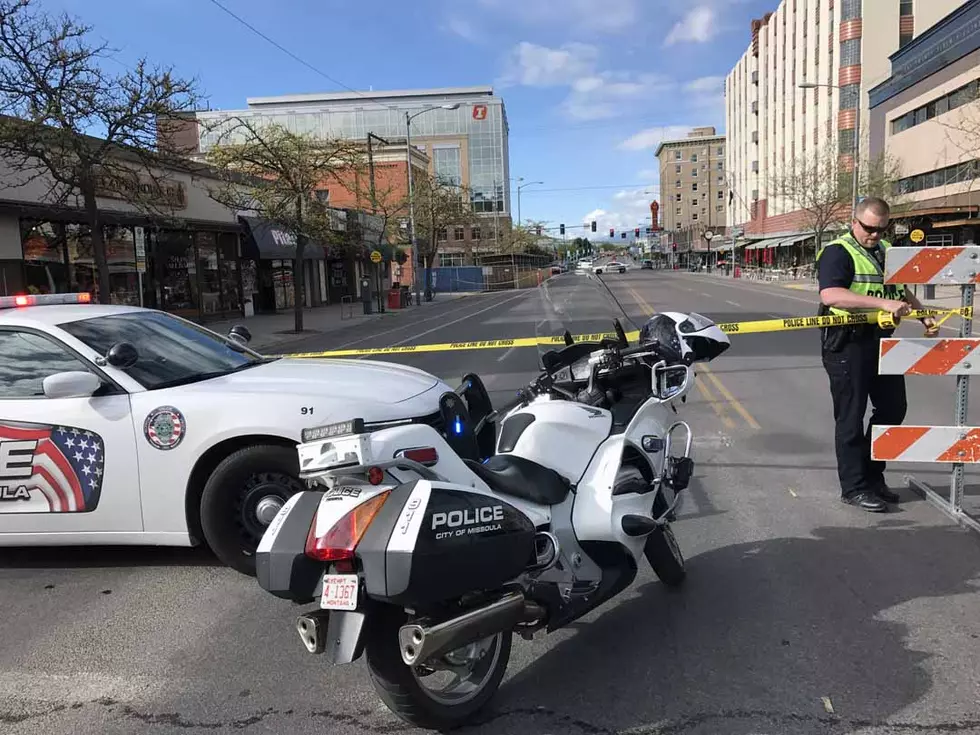
City Council tackles police budget; opponents call for defunding
Tax revenues released this week by the state came in close to what city officials had projected, enabling the Missoula City Council to continue down the path of writing next year's fiscal budget.
Amid calls by some to defund the police, the city looks to make subtle investments in public protection and community policing, including officer training, protective gear and mobile equipment.
Despite social media rumors, there is no armored vehicle in the proposed budget.
“I'm proposing funding these investments in a police department that isn't broken but is not perfect, that works hard but could work better, and officers who are eager to learn more and do better work and help more people,” said Missoula Mayor John Engen. “We will be more accountable because of these investments.”
Just five years ago, the Missoula Police Department was understaffed and under trained, resulting in a slap by the U.S. Department of Justice stemming for practices of discrimination against women regarding cases of sexual assault.
The city has worked ever since to correct those deficiencies and hold perpetrators responsible. And while the department isn't perfect, Engen said, it has emerged as a model program.
“That is police reform at work,” he said. “It was painful, it required self-reflection, accountability and a willingness to change and invest.”
The new city budget has come under intense scrutiny this year, and the police department is no different. Demonstrators who gathered in downtown Missoula in June and part of July called upon the city to defund the police department and give the revenue to various social causes.
The city has heeded those calls in part, investing millions of dollars in affordable housing, food assistance, crisis intervention and sheltering the homeless. But for the department to protect public safety, Engen said, the city needs to invest in the training of its officers, its policies and the department's infrastructure.
“I don't think the Missoula Police Department was broken before George Floyd was murdered in Minneapolis, nor do I think it's broken today,” Engen said. “What's changed is that folks are paying more attention, and rightly so, and want to know that I and the Missoula Police Department are aware that our community has high standards for public safety and our police officers.”
This year's budget requests include $268,000 to hire two new officers, $75,000 for body-worn cameras and interview rooms – including those fit for children victims – and $34,000 for personal protective gear, including helmets.
It also seeks $226,000 to conduct more officer training, including de-escalation and bias.
“You'll see that in this budget, the continuing education and advanced training for all officers,” Engen said. “You'll also note an emphasis on bias and de-escalation, two critical concerns I continue to hear from the community.”
Police Chief Jaeson White said the city's violent crime rate is the lowest it has been in the past three to five years, a credit due in part to local law enforcement. In 2018, White said, the city's officers directly saved 10 lives.
They also responded to more than 60,000 incidents last year. Of those, just .28% resulted in use of force. The national average is 2%, according to White.
“Our personnel are called upon to handle a wide variety of calls for service,” said White. “Those calls for assistance from our public requires our officers to respond to events that are sometimes tense and uncertain. In doing so, our officers place themselves in possible harm in order to peacefully resolve the event, protect innocent victims and protect our community.”
Opponents of police funding have been vocal in their opposition. Daniel Carlino called the city's budget and police funding akin to "systemic racism" and "white supremacy."
“You either care about BIPOC safety in Missoula or you don't, and you've shown you don't with your budget,” Carlino said. “At the end of the day, it seems like you're going to keep upholding the same white supremacist society since you benefit from it.”
While opponents, including Carlino, suggested the city is funding the police at a higher level than housing, facts point to the opposite. The city has spent nearly $10 million already this year to fund affordable housing, shelter, provide food security and other socially minded programs.
Engen said the city can invest in its protection while doing other things as well.
“It's not mutually exclusive to help meet the needs of the vulnerable souls in our community, nor does it detract from our intentional efforts to support the basic human needs of housing,” Engen said. “This City Council has approved nearly $10 million over the past few weeks to support affordable housing in Missoula, along with ongoing investments in ending homelessness, providing emergency shelter, supporting food programs and more.”
https://missoulacurrent.com/government/2020/07/2021-budget-housing/
https://missoulacurrent.com/government/2020/07/budget-missoula-fire/
https://missoulacurrent.com/government/2020/07/budget-parks-rec/
https://missoulacurrent.com/government/2020/07/budget-public-works/
